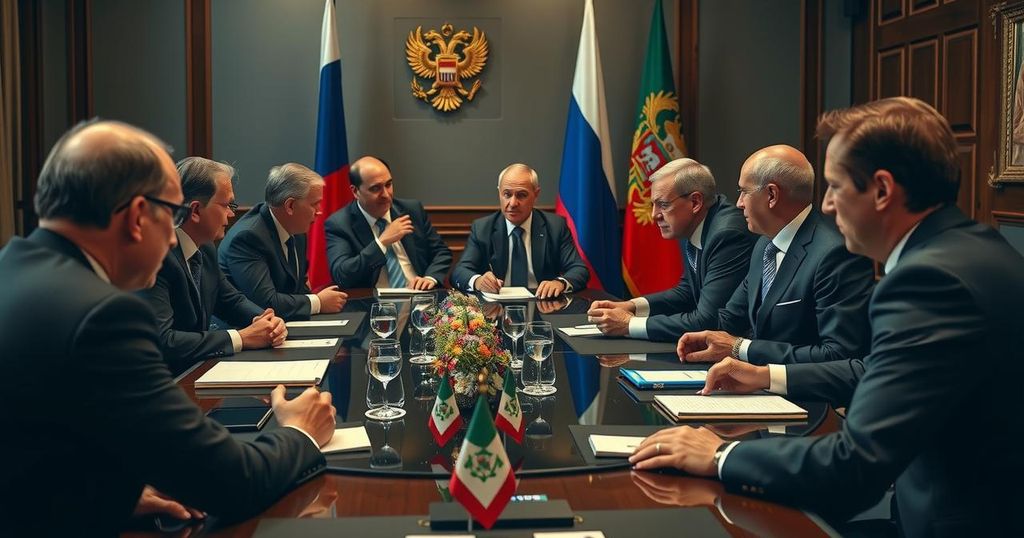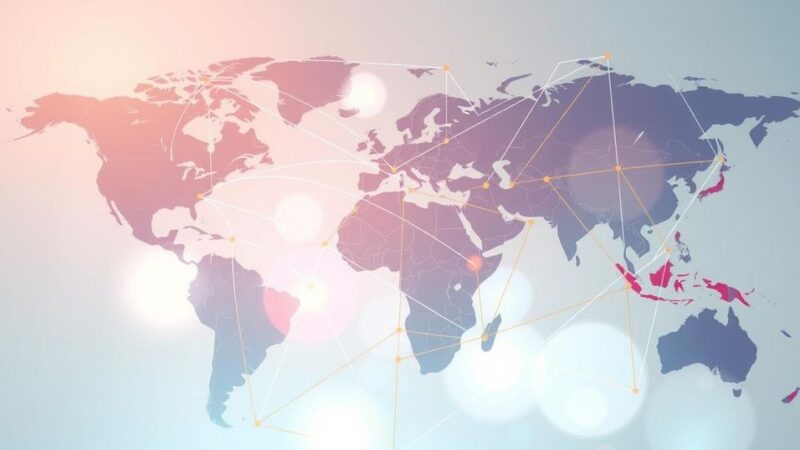Indian Prime Minister Narendra Modi and Chinese President Xi Jinping held their first bilateral meeting since the 2019 standoff in Ladakh during the BRICS Summit in Kazan, Russia. Their discussion comes on the heels of a diplomatic breakthrough that aims to restore the status quo prior to May 2020, amidst improving relations and a consensus on patrolling arrangements along the disputed border. The meeting is significant for weighing the resumption of trade and economic ties, which had deteriorated over the years due to heightened tensions.
In a significant diplomatic development, Indian Prime Minister Narendra Modi and Chinese President Xi Jinping convened for their first bilateral discussions since 2019 in Kazan, Russia. This meeting takes place amidst a backdrop of strained relations between India and China owing to the military standoff in Ladakh, which was initiated by China’s unilateral actions that infringed upon the Line of Actual Control, the effective border delineating the two nations. The talks occurred during the BRICS Summit in Kazan, just days following a breakthrough in dialogues at both diplomatic and military levels, aimed at restoring the pre-standoff status quo that had been in place prior to May 2020. This restoration to a new patrolling arrangement signals a movement toward de-escalation in an area where both nations have mobilized large military contingents. This meeting highlights a positive shift in India-China relations, particularly following a consensus achieved regarding the patrolling protocols along the Line of Actual Control, which have been troubled by several challenges in recent years. Although the two leaders had brief, informal interactions at prior international summits, such as the G20 in Bali and the BRICS gathering in South Africa, this meeting was the first opportunity for a comprehensive discussion encompassing trade, economic, and wider bilateral matters. Notably, direct flights between China and India had been suspended for four years, and the process to allow Chinese technicians to enter India involved heightened security protocols. Furthermore, investments from Chinese enterprises, and those from neighboring countries, were subjected to extensive vetting and scrutiny. The outcomes from this significant bilateral meeting are poised to shed light on whether trade, economic relations, and cultural exchanges between the two countries will regain their former robustness.
The relationship between India and China has faced significant tensions following the military engagement in Ladakh, which began in May 2020. The resultant conflicts, particularly the Galwan Valley clash in June 2020, have led to an escalation in troop deployments along the contested border. This backdrop of military hostility had been prevalent, accompanied by restrictive measures on diplomatic engagements. Notably, the significant pause in direct flights and modified visa regulations for Chinese nationals exemplified the deterioration in bilateral ties. The current summit presents a critical juncture in potentially revitalizing relations affected by the prolonged standoff.
In summary, the bilateral meeting between Prime Minister Narendra Modi and President Xi Jinping marks a pivotal moment in India-China relations, following years of tension stemming from the Ladakh standoff. The dialogue aims to redefine the bilateral framework, particularly concerning military de-escalation and the facilitation of trade and people-to-people connections. The outcomes of this meeting will be closely monitored to understand the future trajectory of ties between these two regional powers.
Original Source: www.ndtv.com






